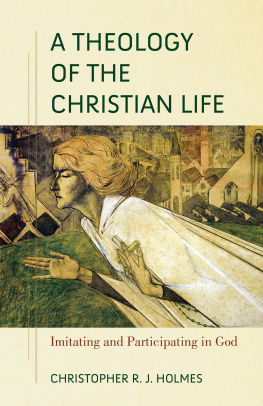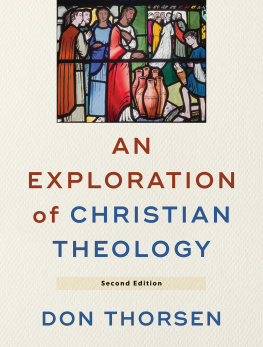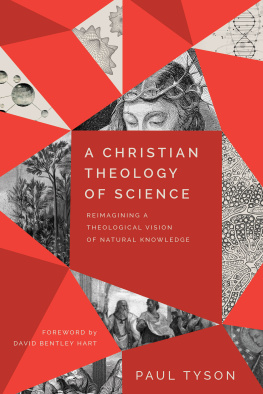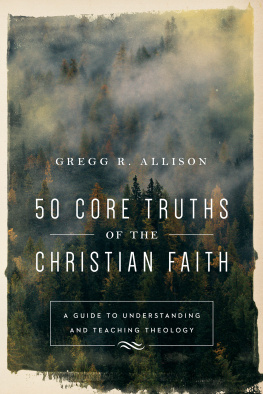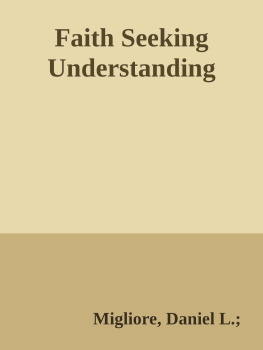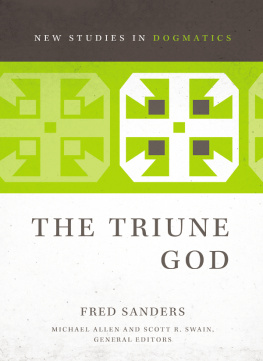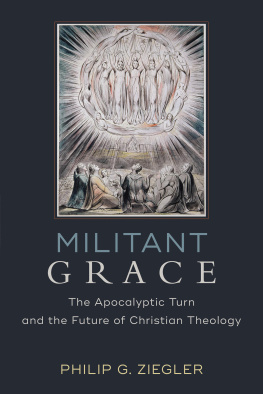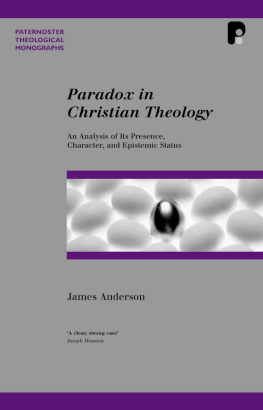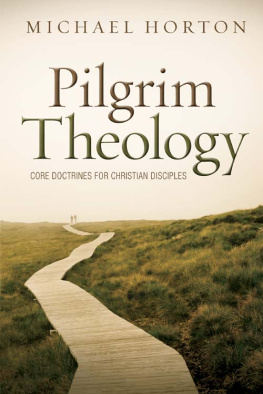Endorsements
Many of the great Christian writers down the centuries have set out their theology using the language of participation. Stressing that all things come from God, and that all things find their fulfilment in relation to God, this theology naturally integrates thought, practice, and a common life in the community of the church. Christopher Holmes inhabits this tradition deeply, naturally, and persuasively. His study is particularly notable for the degree to which he is as much at home with the text of the Scriptures as with the writings of the church fathers, Aquinas, or the Reformers.
Andrew Davison , University of Cambridge; author of Participation in God: A Study in Christian Doctrine and Metaphysics
This is a magnificently theological reflection on Christian existence. Books about the Christian life often devolve into banal how-to manuals. Here, however, Holmes explores how the life of a Christian opens up to the reality of God himself, in a way that exposes the deepest truths of divine life. In serious but lucid prose, Holmess skills as a master systematician are movingly deployed in the service of a mind and spirit suffused with the love and adoration of God. Shaped by the classic wisdom of the fathers and of Thomas Aquinas especially, with Scripture at its root, Holmes carefully opens up for the reader the astonishing promise by which Gods perfections are shared with us. Dogmatic and spiritual theology are wedded here in an incomparable contemporary fashion that calls for the urgent attention of every Christian, whether student or scholar, lay or ordained.
Ephraim Radner , Wycliffe College
Title Page
Copyright Page
2021 by Christopher R. J. Holmes
Published by Baker Academic
a division of Baker Publishing Group
PO Box 6287, Grand Rapids, MI 49516-6287
www.bakeracademic.com
Ebook edition created 2021
All rights reserved. No part of this publication may be reproduced, stored in a retrieval system, or transmitted in any form or by any meansfor example, electronic, photocopy, recordingwithout the prior written permission of the publisher. The only exception is brief quotations in printed reviews.
Library of Congress Cataloging-in-Publication Data is on file at the Library of Congress, Washington, DC.
ISBN 978-1-4934-3338-4
Unless otherwise indicated, Scripture quotations are from the New Revised Standard Version of the Bible, copyright 1989 National Council of the Churches of Christ in the United States of America. Used by permission. All rights reserved.
Scripture quotations labeled DBH are from David Bentley Hart, The New Testament: A Translation (New Haven: Yale University Press, 2017).
Baker Publishing Group publications use paper produced from sustainable forestry practices and post-consumer waste whenever possible.
Dedication
To Lillian, Fiona, and Markus
Contents
Endorsements
Title Page
Copyright Page
Dedication
Acknowledgments
Introduction
Part One
1. The Existence of God and the Christian Life
I AM
How Do We Know That God Exists?
Spiritual Sight
2. The Manner of God s Existence and the Christian Life
Sense Perception?
Virtue
Mosess Example
Familiarity with God
The Souls Elevation in Prayer
Ascetical Existence
The Moral Race Course of the Baptized
3. Perfection and the Christian Life
The Likeness of God
Is Christ Perfect?
Rewards
The Fathers Invisibility
A Light Yoke
4. Infinity and the Christian Life
Angelic Existence
The Bodiless God
The Trinitarian Dimension
God as Ever Greater
The Love of God
Devotion and the Doctrine of God
The Perennial Relevance of 1 Corinthians 15:28
. Immutability and the Christian Life
Choice
The Way of Life
True Worship
The Unchanging God
On Not Diverging from God
Charity
Friendship with God
Part Two
6. The Hypostatic Union and the Christian Life
Believing Agency and Being
The Great Difference
Superiority to the Demonic
Living the Divine Life
7. Virtue and the Christian Life
Virtue
Theological Existence
The Holy Spirit
Gods Renown
Prayer
8. Church and the Christian Life
The One Foundation
A Fruitful Death
The Grace of Prayer
Conclusion
Scripture and Ancient Writings Index
Author Index
Subject Index
Back Cover
Acknowledgments
I am grateful to my colleagues in the Theology Programme at the University of Otago. The Programme remains a friendly and hospitable place in which to pursue theology directed toward God for the edification of the faithful. Moreover, the Programme is blessed with some superb PhD students. One of my doctoral students, Brent Rempel, took the time to read the entirely of the manuscript in draft form, offering perceptive comments along the way. I am in his debt.
I am also thankful for my wife Christina and my three children, Lillian (15), Fiona (13), and Markus (8). Lillian, Fiona, and Markus have asked for a while to have a book dedicated to them. Well, this is it. May the truths about which I write empower them, and may God always be their best thought by day and by night.
Introduction
T his is a book about the Christian life. It attempts to address the heart of that life by considering some of the great truths concerning God. I interact with many conversation partners, mainly the Greek fathers of the ancient and early medieval churchOrigen, Gregory of Nyssa, John of Damascus, and Maximus the Confessorthough Augustine and Thomas Aquinas are never far away.
I have written this book to encourage love of God and reflection on how Gods life forms the rubric for imitation of God and participation in him. This book is a scholarly fruit of my reading of a range of (mostly) Greek teachers, written to aid my growth as an expositor and lover of the sacred page, hopefully helping others to do the same. Whether Gregory of Nyssa or Maximus, all these thinkers are united in their adoration of and devotion to the sacred page. Being properly preoccupied with God, they strove prayerfully to speak and write of God in truth.
My basic contention is that Gods existence, perfection, infinity, and immutability form a wellspring for Christian life. These names (I will discuss the use of this word in chap. 1) function as a template for Christian life. We are Christians when what is true of God is more, rather than less, true of us.
When I first began to think about the book, I thought it would concern Thomass use of Old Testament Scripture, in the first part The second part of the book discusses the impact of God on Christology and ecclesiology.
A twofold scriptural motif anchors the book. The first is imitation. Be imitators of God, writes Paul (Eph. 5:1). The second is participation. Thus he has given us... his precious and very great promises... [so that you] may become participants of the divine nature (2 Pet. 1:4). Both themes help us to consider how we might resemble the God in whom we exist.
The pages to come unfold a program of spiritual renewal founded on some of the essential names or attributes of the divine being. I describe something of the personal, moral, and spiritual import of God as He is in Himself. In this book, I unite the contemplative and the practical. I offer a scripturally charged account of some of Gods essential names with a view to imitation of and participation in God. In other words, my concern with these attributes is descriptive and prescriptive. What do they say about Gods being, and what kind of life do they encourage?

